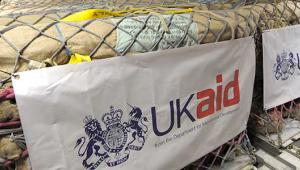web_schoolafrica_shutterstock_315777626.jpg

Children in school
Education International and the British National Union of Teachers have urged the Ugandan government to remain “steadfast” in its decision to close all 63 schools run by the controversial, for-profit company Bridge International Academies.
Bridge International, which plans to sell basic education services to 10 million students in low-income countries throughout Africa and Asia by 2025, has been criticised for its operating model, under which teachers deliver scripted lessons from tablets.
Today, EI and the UK’s NUT said a new study by EI evidenced that Bridge International’s methods disregard Ugandan legal and educational standards. These include the requirement to employ qualified teachers, observe the national curriculum and meet standards on school facilities.
“The company has created a business plan based on strict standardisations, automated technology, cheap school structures and internet-enabled devices that are used to carry out all activities that make up an education system,” EI said.
Bridge International’s method is based on drastically reducing operating costs and benefiting from economies of scale by employing unqualified teachers and paying them severely low wages, it added.
According to the report, nine out of ten Bridge International teachers are unlicensed – a breach of Uganda’s 2008 Education Act.
“Every child deserves to be taught by a qualified teacher, delivering an engaging curriculum in safe schools conducive to good teaching and learning,” said Fred van Leeuwen, EI’s general secretary.
Bridge International, however, has highlighted issues such as the high rate of teacher absenteeism in state schools in Uganda, or a shortage of learning materials, which deprives many children of a quality education already.
The school argues it is helping the Ugandan government offer better chances to more children, and has stressed that its method achieves results. According to Bridge, its pupils in Kenya had a 40% higher chance of passing national primary exit exams, for example.
And indeed, the organisation has won funding from influential backers, including the World Bank, the US government and the UK’s Department for International Development.
But not everyone is convinced. Kevin Courtney, general secretary of the UK’s NUT, called on his government to “immediately cease” the use of UK taxpayers’ money to promote education privatisation overseas.
The report noted that Bridge International’s school fees for one child cost an average Ugandan household 23-27% of their earnings for one year.
“Bridge International continues to undermine the provision of education as a human right and public good in the global South. It is support by the UK’s DFID, and both are complicit in compromising the rights of poor children. The NUT notes that the UK government says it is opposed to profit-making from state schools in the UK,” said Courtney.
The United Nations’ special rapporteur for education and a group of more than 100 civil society organisations have also voiced their contempt for Bridge International, while the Ugandan government attempted to close all Bridge International schools after concluding they fell short of standards on education, hygiene and sanitation.
But Bridge International says it is making a difference for children. It quotes one parent, Nalibaddawa Mariam, as saying that Bridge International is the only school focusing on education quality, whereas state schools have missing teachers and overcrowded classrooms.
In September, Uganda’s high court ruled that Bridge International schools in the country should remain open until the school can challenge the closure order from the Ugandan ministry of education.
The case was due to be heard at the start of this week.












